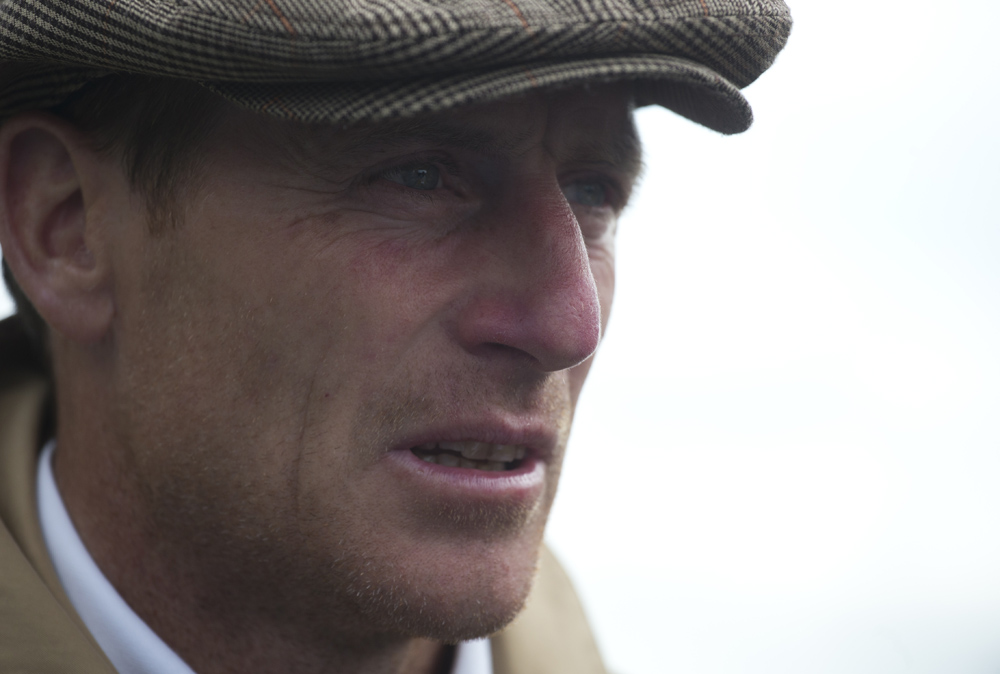By Chris McGrath
A disaster of the type that overtook Freddy Tylicki last month will dependably bring out the best in the Turf community. However solitary and harrowing the challenges Tylicki now faces, he can be in no doubt of the support both of the broader public and, above all, of those men and women he rode against daily until his life was changed in a split second halfway through a humdrum race at Kempton. Jockeys, noting that the routine performance of their duties can only be undertaken with ambulances in pursuit, invariably describe each other as colleagues sooner than rivals. But their way of life has also left them–across the ages–unusually exposed to more insidious, less flagrant dangers: eating disorders, depression, addiction. And, in detecting and addressing hidden corrosion of this kind, they have often proved no better attuned than the rest of society.
It was also at Kempton, last week, that a senior rider voluntarily surrendered his riding licence after apparently persuading a teenage apprentice to donate a urine sample in his stead. It was nearly a decade ago that the same jockey, Graham Gibbons, served a five-week suspension after failing a breathalyser test.
While this latest incident remains under official investigation, the exploitation of an impressionable youngster may well have been as desperate as it was patently callous.
Whatever the merits of that particular case, the mental and physical rigours of their calling make jockeys peculiarly susceptible to psychological conditions that nourish a sense of isolation. That being so, an increasing awareness of mental health and dietary issues in the wider world can hardly fail to be reflected in a fraternity that prides itself on fellowship. Sure enough, the professional community has now found a way to assure its members that whatever their secret sufferings, they must never think of themselves as being alone.
Jockey Matters is a series of short films commissioned by the career development charity JETS (Jockeys' Employment & Training Scheme) in partnership with the riders' trade body, the Professional Jockeys' Association. Some of the biggest names in the sport–including A.P. McCoy, Ryan Moore and Johnny Murtagh–have spoken with striking candour of their own experiences, or offered advice. Combined with production standards far surpassing a very limited budget, the videos have been received with due warmth both inside and beyond the weighing room. Professional guilds in other sports, generally with far superior resources, are among those to have shared in enthusiastic reviews. Most critically of all, however, the series seems to be achieving its No 1 priority: namely, to draw the attention of riders to the help that is available. Paul Struthers, chief executive of the Professional Jockeys' Association, says that as many as 30 of its members have responded to what they have seen by coming forward to seek specialist, one-to-one counsel on nutrition–while six new therapist referrals have been prompted by the film highlighting issues with regard to mental health.
“Each of the videos were shown for the first time at a jockeys' seminar,” Struthers says. “Every 7lb claiming apprentice or conditional jockey has to attend one of these one-day sessions every year. And the feedback, every time, has been fantastic. But while the films were aimed primarily at those young riders, coming into the sport, one of the reasons we were so keen for them to look the way they do is that they had to work also for our existing members.”
In truth, the content warrants far wider attention–certainly among those with any kind of professional, social or family relationship with jockeys; and, in some instances, arguably even among young people in any walk of life, trying to make their way in the world. That said, it is not difficult to imagine the impression likely to be made on the core audience by, for instance, the exceptionally courageous interview given by Murtagh in a film dealing with addiction. The three-time Derby winner, who retired to concentrate on training in 2013, recalls a long struggle with alcohol during the first decade of his riding career. He reached his darkest hour on a tenth-floor balcony in Dubai, where his plunging self-worth reached a potentially terminal crossroads. “Thankfully, looking over the balcony, something happened to me and I just got down on my knees and said: 'Please God, help me, something's wrong with me,'” he says. “And that was the turning point in my career.”
Equally impressive is the testimony of Mark Enright, a young Irish jump jockey who tells of his battle with depression in a film tackling mental health and wellbeing. “You think you're the only person in this black hole,” he says. “You can speak to a professional, you can speak to a friend, but definitely the first step was letting the cork out of the bottle.” After listening to his torments, another jockey sent Enright a text: “I thought I was alone. Thank you, you've saved my life.”
In the same film, the indomitable, man-of-iron McCoy admits that in his youth, after a bad day, he would sit alone for hours in a dark room. “I think jockeys find it hard to talk about mental health problems because there's this stigma of them being really tough and mentally strong, and not having any weaknesses, and it being a real man's sport,” he says. “But at the end of the day, no matter who you are, I think it always helps to talk to people.”
McCoy and Murtagh have both now retired from the saddle, of course, and Struthers paid due tribute to Enright for being prepared to speak out while still in the relatively early stages of his career. His example inspired Graham Lee, a top jumps rider in his day but now plying his trade on the Flat, to confide his own difficulties to the British trade newspaper Racing Post–and to do so, moreover, on a specific day in October.
“Graham had decided he was ready to talk about it,” Struthers says. “I said: 'Before you do, have a look at this video–we're launching it on Monday to coincide with Mental Health Awareness Day. Graham is great mates with A.P. anyway, and he was also able to see how comfortable Mark was with it all. And I think it gave Graham the confidence to think: 'You know what, I can talk about this–there's nothing to be ashamed of, and it's going to help people.' Depression affects one-in-four of the wider population and, given their lifestyle, it's going to be higher for jockeys. It's about breaking down that stigma, and raising awareness of the support that's available.”
For all the expert help now available, nobody is remotely complacent that every gap can be filled in the fragile apparatus holding a jockey together, body and soul. Struthers says that the films were made in the context of growing alarm about a vogue for self-induced vomiting as a means of weight control. “We're not shying away from the fact that while the support is better than ever before, in terms of nutrition, strength and conditioning, we also know–anecdotally–that there has been a big increase in the prevalence of 'flipping,'” he says. “We know we need to deal with that head on, and these videos were very much put together in order to front up. The riders need to know that the help is there and that most of it, thanks to the support we get, is free.”
Three of the six films to date–it is hoped that more will follow in the new year–duly focus on different aspects of nutrition: “Making Weight the Right Way“; “Staying Hydrated“; and “Healthy Choices.” There is also a video on rehabilitation from injury, which can of course be as significant a mental challenge as a physical one.
Lisa Delany, general manager and careers coach at JETS, is also delighted by the reception of the project, which was managed by Kate Struthers and produced by James Ward. “Historically we've always found videos to be really good teaching tools, when it comes to career development or transition,” Delany said. “And while we've seen other sports making similar films, we wanted something punchy, something that would really grab you if you were a young rider. James and Kate have done a fantastic job, and of course we also owe huge thanks to those jockeys who have opened up, as names that young riders will really look up to. We've been blown away by the number of views, I think Johnny's interview had 2,500 overnight. Graham Lee has said that he has had issues going back possibly 20 years–and we're talking about a man who has in that time won the Grand National and the Ascot Gold Cup. So it's all about starting the conversation, about signposting the help that's available.”
Not a subscriber? Click here to sign up for the daily PDF or alerts.






